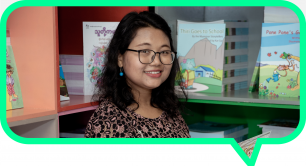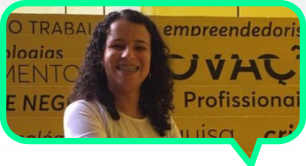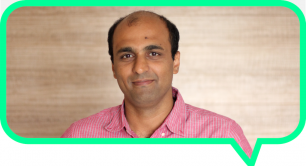‘We’re really thinking differently about resourcing and scaling’ - Ali Clare, Re:Coded
Re:Coded was founded in 2017 to teach coding to young people in conflict-affected areas so they can get jobs within the digital economy, and to build a network of developers across the Middle East focused on solving society’s problems. Headquartered in Portugal, the nonprofit has branches in Turkey, Syria, Iraq and Lebanon; its bootcamps have trained 380 peeople to date. Co-founder Ali Clare tells us about the impact of Covid on student dropout rates, rethinking team roles, and spending 24 hours a day with her co-founder (and partner). Plus, the Istanbul trainer getting to grips with a whole new way of working.
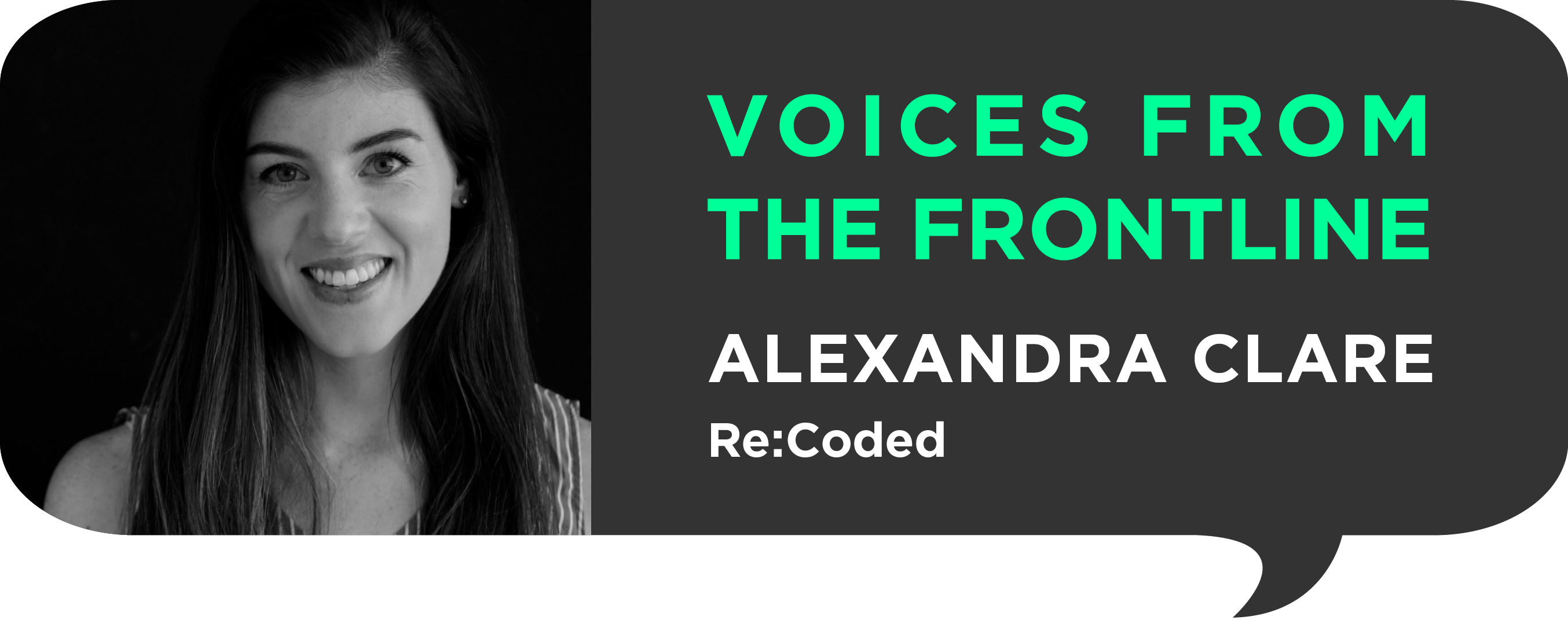 “Before Covid-19 we ran immersive bootcamps in Iraq, Turkey and Yemen, in a variety of technical subjects including web development and UX/UI design. They ran as a blended model – we had all of our curriculum online, but students were physically coming to a space three times a week for training by our education team. The training is in English, but the vast majority of our trainers also speak Arabic or Turkish so they're able to translate where necessary. Now, all those classes take place online.
“Before Covid-19 we ran immersive bootcamps in Iraq, Turkey and Yemen, in a variety of technical subjects including web development and UX/UI design. They ran as a blended model – we had all of our curriculum online, but students were physically coming to a space three times a week for training by our education team. The training is in English, but the vast majority of our trainers also speak Arabic or Turkish so they're able to translate where necessary. Now, all those classes take place online.
We had a programme starting in Turkey on 15 March. We were able to do one in-person onboarding session, where people could pick up laptops or devices for internet connectivity. In Iraq, lockdown was much stricter so we’ve been physically driving out laptops to students.
Empty Re:Coded office in Istanbul, Turkey
Students are now coming to a virtual classroom three times a week. The purpose is to revise or go deeper into topics that they are learning, and get them to work on practical coding or design projects.
Big concerns
We were pretty worried at the beginning. We expected a much higher dropout rate compared to students coming in person, but it actually had the opposite effect. We already had around 90% completion rates for the programmes but, so far, dropout rates have been lower than pre-Covid – I think because people don't have really long commutes, and so are actually more engaged in class.
Dropout rates have been lower than pre-Covid – I think because people don't have really long commutes, and so are actually more engaged in class
Another big concern was how to build connection and community in the classroom when it’s all virtual. But it's been really amazing to get feedback from the students about how connected they feel to their classmates, without ever having met them in person.
Women taking part in a coding bootcamp, pre-Covid
For team members, working remotely requires different types of communication, so we did a couple of things really quickly. We built an internal platform documenting the whole organisation: how we do things, why do things, documenting all of the programmes that we run, building dashboards so that everybody had access in real time to all the same information and could simultaneously work on documents together.
Some team members’ roles were not necessary during Covid, like people who were operating our coworking space, or cleaning, or on reception. But we made a commitment that we would keep them fully paid for as long as we could. So we've kept them on the payroll, knowing that this is their only job.
Finding new customers
Our contracts are set well in advance, so the funding was already secured at least a year ago for a lot of our programmes. And because our main funders are big government aid agencies, their funding priorities didn't shift. I think they quickly realised that we were one of the only organisations able to continue operating during Covid, and that it's absolutely essential to be training people on digital solutions, such as building ecommerce platforms for shops to survive.
Early this year we launched a for-profit organisation, Re:Coded Labs, which is a digital agency for impact-driven clients that need tech products developed, such as mobile and desktop apps as well as websites. We hire some of the talent coming out of our immersive programmes to work on these projects, and all the profit is driven back into the programmes. During Covid, we were lucky that a lot of people wanted to revamp their websites or develop apps – we're actually turning away clients because we don't have the capacity!
|
What worked for Re:Coded:
|
Rethinking roles
The really exciting thing about going completely online is it's enabled us to think about scaling up the programmes to places where we weren't previously able to have a physical presence, because of security reasons or accessibility. It opens up the possibility for people living in rural areas to join remotely.
That's enabling us to really think about resourcing and scaling in a different way. Previously, we were structured in a way that was very country-specific – we would plan programmes and build a team for that country. As we’re online now, we can have instructors working in different countries at the same time – our education team could be training one bootcamp in Lebanon and one in Iraq on different days, completely remotely. So we're now going through a full internal restructure, where we're moving into more functional roles, rather than country roles.
It really surprised me how much more you end up working when you're working remotely. That definitely starts to impact your mental health
It's been a crazy couple of months, having to make so many huge decisions, so quickly. The stress during this period for everybody is very real. We were based in Turkey (and have just relocated to Lisbon) and had pretty restrictive lockdowns, not being allowed to leave our apartment at all for 15 days. It also really surprised me how much more you end up working when you're working remotely. That definitely starts to impact your mental health.
I'm lucky that I'm married to my co-founder, so we have sort of an inbuilt support system where we're able to share that emotional burden and stress. And that is absolutely critical. I don't think I could have got through this period if I didn't have someone by me to say, ‘We'll figure this out, it's going to be fine.’”
|
“When the Turkish government announced lockdown, the initial thought was to postpone the beginning of the bootcamp. We had long discussions and decided [instead] to take it online. We had some struggles in the beginning, like what video tools we're going to use, and how students will work with each other. We've tried multiple things, from different ways of students sharing the code that they’re working on, to trialling different ways of managing the class itself. We’ve also started to find a formula for matching the students, like putting students with strong abilities who are willing to help with students who are weaker. Online, I have to put in five times the amount of effort that I have to use in person. Judging people’s reactions was the hardest thing for me. You have to encourage them to ask questions, but after two or three classes, they got used to it. The students also assigned a social committee and organised online social events like games night and breakfast night. They all enjoyed it. I would love it if we could have some face-to-face sessions and some online. After the lockdown ended, we did two events with the students to see them face-to-face. It was really nice to get to know them more. We had only met them once in person!” |
Ali and Ammar were speaking to Sasha Gallick. Read more about Re:Coded.
All image credits Re:Coded

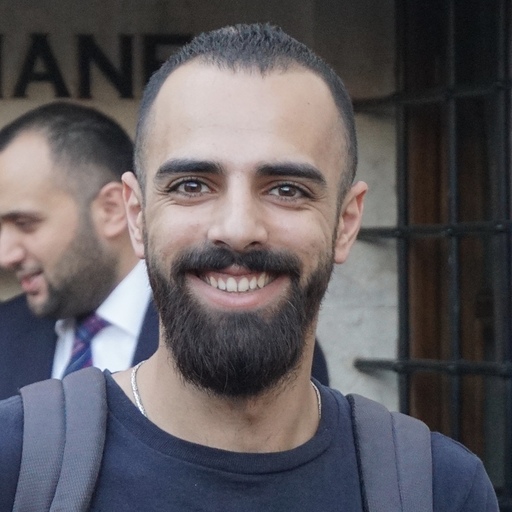 Ammar Sammour was born in Syria as a refugee from Palestine. As a result of conflict, he ended up sleeping in a Malaysian airport for nearly two months before going back to Syria and crossing the border into Turkey at the end of 2015. He heard about Re:Coded’s programmes, and joined as a student on one of its bootcamps in May last year, graduating and then securing a job as one of their two trainers in Istanbul, Turkey. A new cohort started at the beginning of lockdown, and Ammar has been training up to 25 students in three online sessions per week, as well as helping students on a different programme complete their final project.
Ammar Sammour was born in Syria as a refugee from Palestine. As a result of conflict, he ended up sleeping in a Malaysian airport for nearly two months before going back to Syria and crossing the border into Turkey at the end of 2015. He heard about Re:Coded’s programmes, and joined as a student on one of its bootcamps in May last year, graduating and then securing a job as one of their two trainers in Istanbul, Turkey. A new cohort started at the beginning of lockdown, and Ammar has been training up to 25 students in three online sessions per week, as well as helping students on a different programme complete their final project.